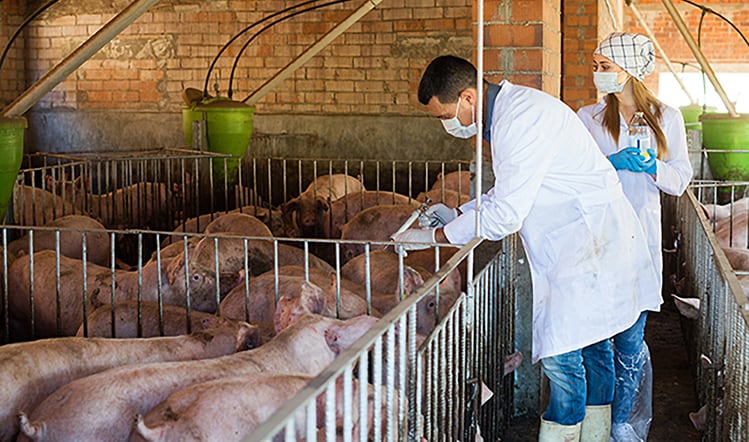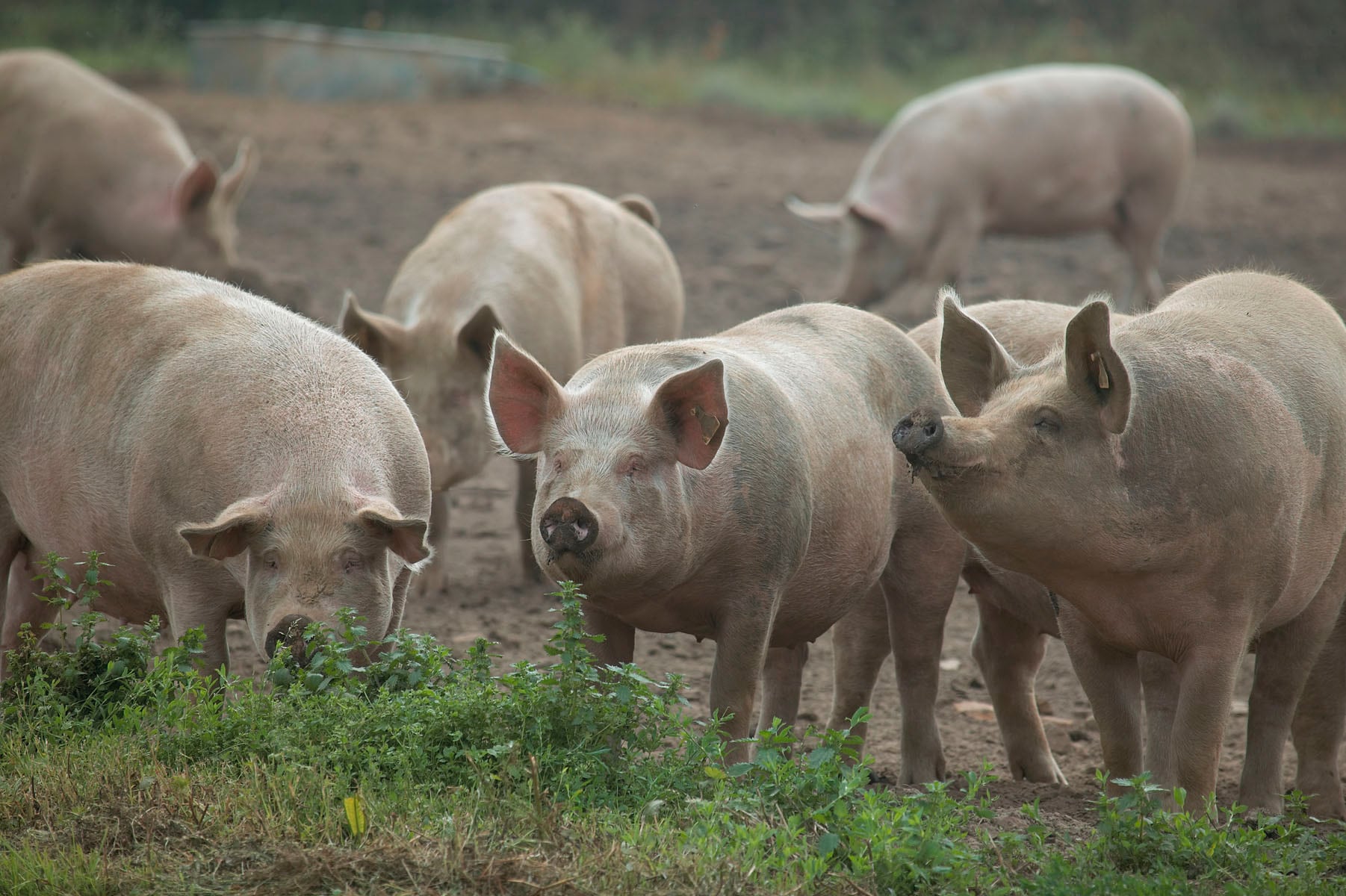We explore the impact on the pig sector and ask whether this lack of butchers could be a sign of things to come across the whole meat sector.
The Government has encouraged farmers in all sectors to be more efficient in order to reduce resources consumed and the costs involved both financially and to the environment.
In the pig sector, this has in part meant that on those farms that have tried to increase efficiency, each first-time farrowing sow gives birth to two to three more piglets on average than first-time mothers a decade ago. This has led to an increase in the number of pigs for slaughter in the UK – precisely what the Government wanted.
Brexit
Since Brexit, many workers trained in butchery in our meat sector returned to the EU. This has meant there are less butchers to cut this ever-increasing number of pig carcases.
With the fridges of abattoirs filling up with pig carcases and nowhere for those carcases to go, abattoirs have been unable to undertake further pig slaughter.
Sadly, many of those pigs that should have been slaughtered in our abattoirs and which would therefore have entered the food chain, have instead been killed on farm.
Animal welfare
Not only does this have an impact on animal welfare of both the pigs coming through and the pigs which have to be slaughtered on farm, the financial impact will be felt at every stage of the food chain, as will the environmental impact.
For farmers who have produced the pigs just to see them culled, this is devastating and may in many cases take a toll on their mental health and possibly even see them leave the industry.
Farmers will have to foot the bill for the slaughter and removal of the pigs which should have been sold for profit. Slaughterhouses with full fridges will have a reduction in throughput which will be felt in their already tight and struggling profits.
Pork prices
The lower supply of pork combined with the increasing demand in the run up to Christmas will inevitably push pork prices for consumers up so that many will consider buying EU pork instead. That is not to mention that the efficiency achieved by farmers in generating more pigs using less resources is also lost into the ether.
In order to tackle the problem, the Government has provided temporary visas to trained butchers from across the world, but who do not meet the minimum language requirements to achieve skilled worker status.
The Association of Independent Meat Suppliers is asking Government to confirm that if companies train up their new temporary staff in the English language, and if such employees meet the minimum requirements for skilled workers by the time their temporary visas expire, whether they will be granted permanent visas as 'skilled workers'.
Closing abattoirs
The lack of workforce to meet demand is not limited to butchers. Skilled slaughtermen are leaving the profession because of closing abattoirs, attractions of higher paid jobs elsewhere and as a result of Brexit.
It is against this backdrop that we are seeing unsubstantiated, unreasonable and overzealous enforcement action by the Food Standards Agency (FSA) in our abattoirs, which results in skilled slaughtermen losing their Certificates of Competence entirely unnecessarily.
When fewer slaughtermen have increased workloads, mistakes are inevitable. For our small abattoirs, with only a handful of slaughtermen, the loss of just one can be disastrous.
Challenge enforcement action
It is vital to challenge any enforcement action by the regulators, and in the climate where the sector is already reaching breaking point, every suspension and revocation of a Certificates of Competence should be vigorously challenged.
For a small abattoir with only one or two qualified slaughtermen, the loss of one could mean that the abattoir must close. Furthermore, it means a prosecution for alleged animal welfare breaches many months down the line is a near certainty.
That action will cause that abattoir business huge expense and even where that business successfully defends the case in court it will be unable to recover its costs from the prosecution. In essence, it will be fined 'via the backdoor' merely by being the subject of an unnecessary prosecution.
The 'What to do if… ' page on Roythornes' website has more information on how to challenge suspensions or revocations of Certificates of Competence.
Rebecca Ironmonger is a solicitor in the litigation team at Roythornes Solicitors




